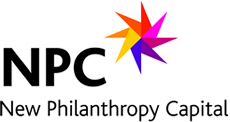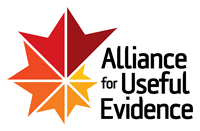Theory of Change is nothing new. It is not just a donor fad or yet another hoop to jump through. It is an ongoing process of reflection to explore change and how it happens in our context. Yet it can provide a very powerful learning lens which makes us ask ourselves and others simple but important questions about what we are doing and why. By focussing attention on the lasting changes we aim to bring, and reflecting on what really contributes to those kinds of changes, it can help us step out of ‘project activity’ mode, question our assumptions, and focus on what really matters. It enables us to learn from others, build a common understanding of our work and develop clarity in our strategies and partnerships. It provides a clear framework for learning, monitoring and evaluation.
So many people in the development world are talking about ‘Theory of Change’ but many are confused as to what it really means. This guide from INTRAC, written for small and diaspora organisations as part of the Common Ground Initiative Peer Learning Programme, therefore aims to demystify theory of change and highlights a few useful resources for further exploration.
This guide from Quality Matters provides an introduction to three commonly used methods for planning impact measurement for social service organisations: Logic Model, Theory of Change and Social Return on Investment (SROI). The aim of the guide is to provide readers with sufficient information to understand these models and select one that will most suit the needs of their organisation.
This paper by Angela Kail and Tris Lumley from NPC explores what is a Theory of Change and how it can be used for strategy, evaluation and understanding outcomes.
This is the first catalog of methods for the Double Bottom Line Project that for-profit and nonprofit social ventures and enterprises can use to assess the social impact of their activities. It analyses feasibility and credibility of 9 methods and provides examples of them in use:
- Theories of Change
- Balanced Scorecard
- Acumen Fund Scorecard
- Social Return Assessment
- AtKisson Compass Assessment
- Ongoing Assessment of Social Impact
- Social Return on Investment
- Benefit-Cost Analysis
- Poverty and Social Impact Analysis
Since 1989, ORS Impact have been delivering deep value into their clients’ organisations, working together to pursue ‘the change they seek,’ and to improve their communities’ health, wellbeing, and prospects to flourish. They share these resources, with a view to building capacity in organizations doing good work around the world. Resources are on topics inclusing Theory of Change, Evaluation Practice, Outcomes and Advocacy and Policy.
BetterEvaluation is an international collaboration to improve evaluation practice and theory by sharing information about options (methods or tools) and approaches.
If we are to talk about measuring social returns, a good starting place is the outcomes that lead to them. This is the point where can measure both the organization itself (sustainability of the business and the model) as well as the cumulative effects of specific outcomes on the lives of the people we wish to help. Causality is implied in a theory of change: “If we achieve A, B, C outcomes, then we expect X, Y, Z to happen.” 100% definitiveness eludes any organization. However, defining a theory of change (even if by another name) and supporting outcomes is necessary before any discussion of returns (including impact, especially.) Sarah Stachowiak, CEO of ORS Impact, walks through the basics.
The Charities Evaluation Services (CES) are leading experts on providing high quality training to help you to develop your work on monitoring, evaluation and quality improvement. CES offers a variety of training courses including courses on PQASSO, Theory of Change, outcomes, impact measurement and practical skills.
This is a presentation that was was delivered by Heléne Clark, ActKnowledge and Andrea A. Anderson, Aspen Institute Roundtable on Community Change at the American Evaluation Association in November 2004. The presentation explains Theory of Change (TOC) and the difference between TOC and Logic Models.
This video, from The Social Investment Business (SIB) Group and the Good Analyst, explains what a Theory of Change is and how you can use it as a key step in deciding what you will need to measure to evidence your social impact, using the example of The Rooftop Garden Project.





